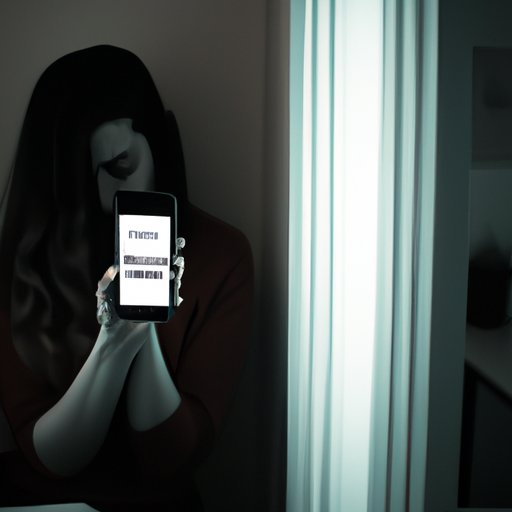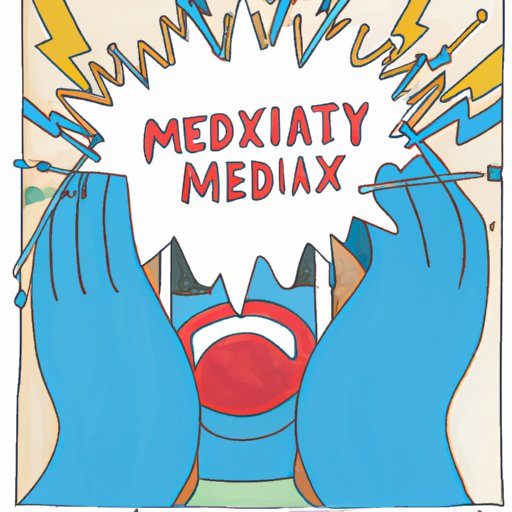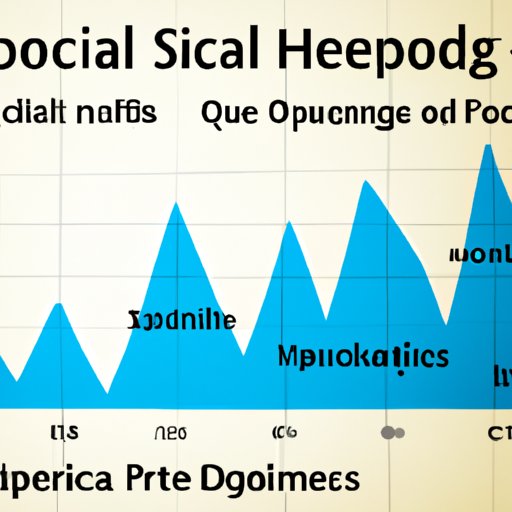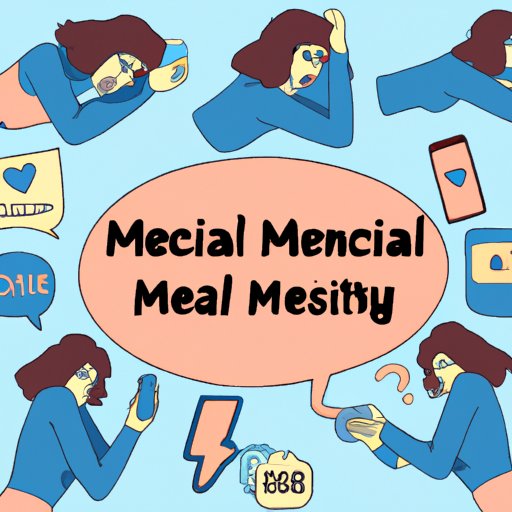Introduction
Social media has become an integral part of modern life, with millions of people across the world using platforms such as Twitter, Instagram, and Facebook to stay connected with friends and family, share photos, and engage in conversations. But while social media can be a great way to stay in touch, it can also have a negative impact on your mental health. In this article, we’ll explore the effects of social media on mental health, including depression, anxiety, and self-esteem, as well as its potential impact on sleep quality.
Examining the Impact of Social Media Use on Mental Health
The use of social media has been linked to a range of emotional and psychological issues, including feelings of loneliness, envy, and inadequacy. It can also lead to increased levels of stress and anxiety. In addition, studies have found that spending too much time on social media can lead to decreased levels of satisfaction with life, as well as difficulty concentrating and sleeping.
Social media can also have a negative impact on interpersonal relationships. Studies have found that excessive use of social media can lead to jealousy, resentment, and mistrust among partners. Additionally, people who are addicted to social media may have trouble forming real-life connections, as they become so wrapped up in their online lives that they neglect their relationships with family and friends.

Exploring the Relationship Between Social Media and Depression
Studies have found a strong link between social media use and depression. People who spend too much time on social media are more likely to experience low self-esteem, which can lead to feelings of worthlessness, hopelessness, and even suicidal thoughts. Additionally, those who are constantly exposed to images of seemingly “perfect” lives on social media may feel like their own lives pale in comparison, leading to feelings of depression.
Furthermore, social media can create an environment where users are constantly comparing themselves to others. This can lead to feelings of inadequacy and depression, as people may feel that they don’t measure up to their peers. Additionally, users may be bombarded with negative comments and criticism, which can further contribute to feelings of depression.

Investigating How Social Media Can Lead to Anxiety
Social media can also cause feelings of anxiety, particularly the fear of missing out (FOMO). This is when people feel anxious or left out because they feel like everyone else is having more fun or doing more exciting things than they are. Additionally, FOMO can lead to a feeling of being overwhelmed, as users are constantly trying to keep up with what’s going on in their social media circles.
Additionally, social media can create a sense of pressure to perform. With the constant barrage of images of seemingly perfect lives, users may feel like they need to live up to these expectations in order to be accepted. This can lead to feelings of anxiety and stress, as users feel like they need to constantly be “on” in order to fit in.
Understanding the Effects of Social Media on Self-Esteem
Social media can also have a negative impact on self-esteem. Constantly comparing yourself to others on social media can lead to feelings of inadequacy, as users may feel that they don’t measure up to their peers. Additionally, negative comments and criticism on social media can further damage self-esteem, as users feel like they are not good enough.
Furthermore, social media can make it difficult to escape negative thoughts and feelings. As users scroll through their feeds, they may be constantly bombarded with images and posts that make them feel inadequate or inferior. This can lead to a cycle of negative self-talk, which can further damage self-esteem.

Analyzing the Impact of Social Media on Sleep Quality
Social media use can also affect sleep quality. Exposure to blue light from devices such as smartphones and tablets can disrupt the body’s natural sleep-wake cycle, making it more difficult to fall asleep and stay asleep. Additionally, the constant stimulation of social media can make it difficult for users to relax and unwind before bed, leading to insomnia.
Conclusion
In conclusion, social media can have a significant impact on mental health, from emotions to interpersonal relationships to depression, anxiety, and self-esteem. Additionally, it can lead to poor sleep quality. To improve mental health, it’s important to take steps to limit social media use and be mindful of how it’s impacting your life. Taking regular breaks from social media and focusing on real-life relationships and activities can help reduce the negative impacts of social media on your mental health.
(Note: Is this article not meeting your expectations? Do you have knowledge or insights to share? Unlock new opportunities and expand your reach by joining our authors team. Click Registration to join us and share your expertise with our readers.)
